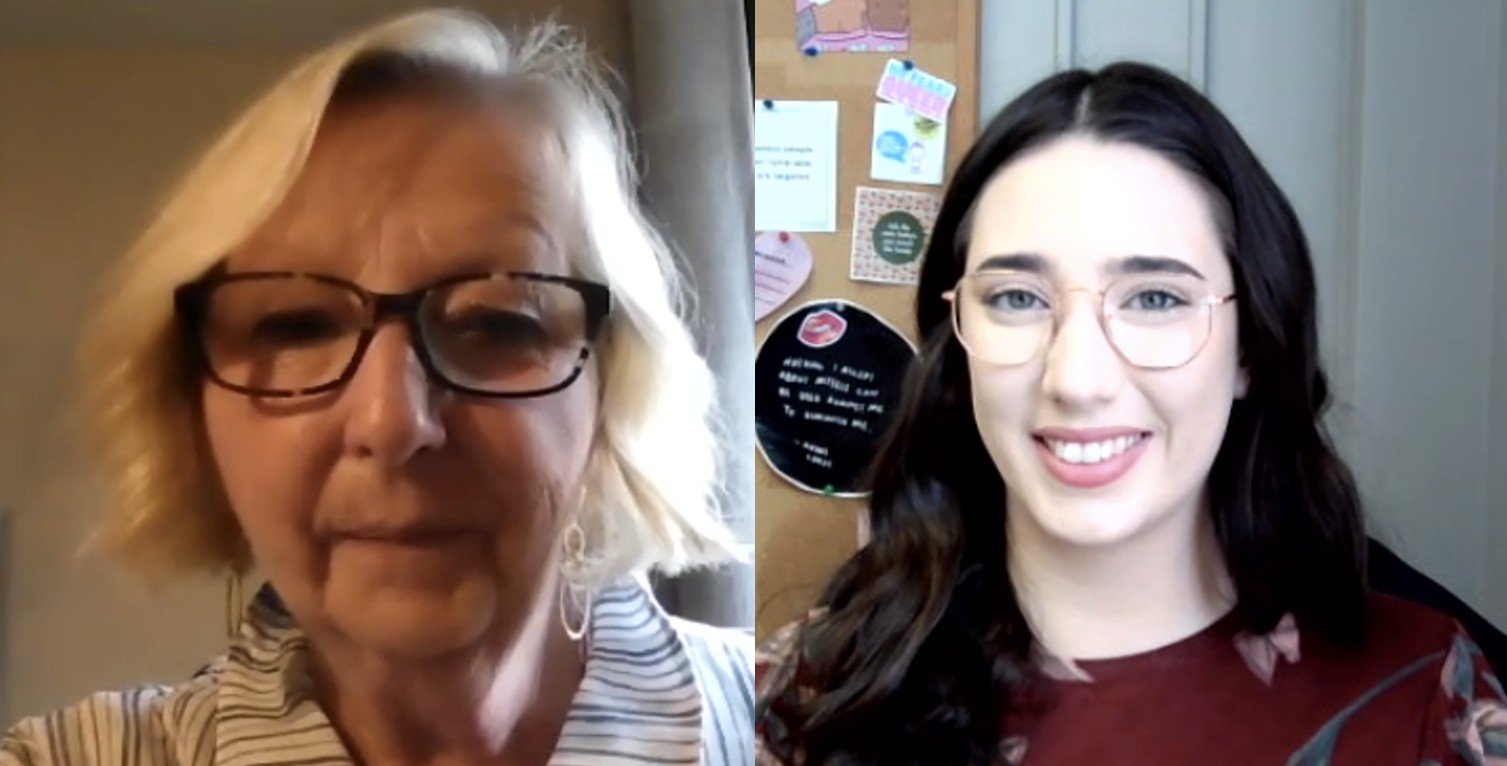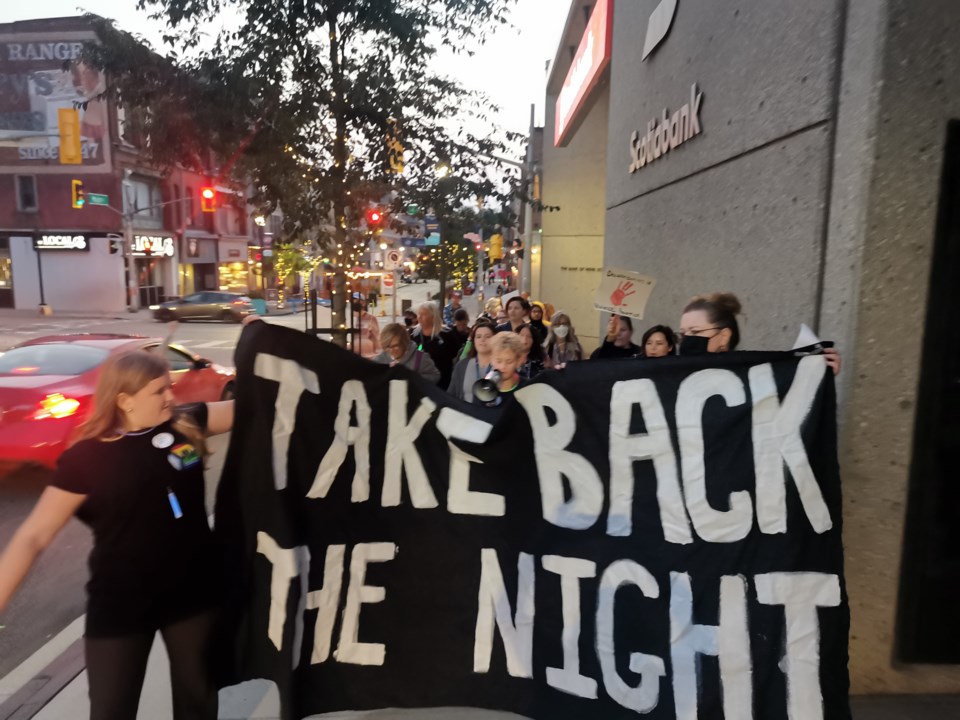One in three Canadian women and one in six men will experience sexual violence in their lifetime according to the Ontario Ministry of Children and Women’s Issues.
With the occasion of May as Sexual Assault Prevention Month, the ministry says that women are three times more likely than men to be stalked and four times more likely to be victims of intimate partner violence.
This month is an opportunity to “raise awareness about the devastating impact of this crime, to better understand its deep cultural and historical roots, to support victims and survivors and to work together to stop the violence,” said Jill Dunlop, Associate Minister of Children and Women’s Issues.
For Sarah Wiley, a violence prevention educator at the Sexual Assault Support Centre (SASC) of Waterloo Region, the biggest issue leading to a rise in sexual assault crimes is that “we live in a rape culture where we normalize sexual violence and blame victims rather than perpetrators for those crimes.”
Between 2016 and 2020 there were 45 sexual assault charges on average each year in Waterloo region, according to SASC.
“In 2021, the total charges for this crime were 76 laid by Waterloo regional police, a 62 per cent increase from the previous year. We have seen that continue in 2022 with 55 charges laid,” Wiley said.
“Sexual violence and gender-based violence are unfortunately cultural, and they are incredibly preventable,” added Wiley in an interview with CambridgeToday.
“Eighty-two per cent of survivors of sexual assault were assaulted by somebody they know and trusted, like a friend, a partner, a co-worker, or a family member.”
The situation worsens with cases of human trafficking, defined by SASC as forcing someone to do labour that they didn't consent to doing.
The SASC’s Anti-Human Trafficking Program reports that since 2018 it has supported 290 individuals in Waterloo region, of whom 70 per cent were youth under age 25 and 50 per cent of them have been children under 18.
“In Canada, 62 per cent of reported cases of sex trafficking happens in Ontario,” Wiley said, adding that cases of sex trafficking are “incredibly under-reported” because of the stigma, fear or “failures” within the justice system.
Kim Decker, CEO of the YWCA Cambridge, said many women don’t want to report sexual abuse either because they don't want interaction with the police or somehow blame themselves for what happened.
“We work with women who have just currently experienced sexual violence but also, we are supporting women who are dealing with historical trauma as a result of sexual violence from when they were younger and have never had the opportunity to deal with it,” she told Cambridge Today.
A busy 24-Hour-Support-Line
Since 1989, SASC has provided a 24-Hour-Support-Line in Waterloo Region (519-741-8633).
From April 1, 2022, to March 31, 2023, this service received 1,381 calls, or 3.8 each day on average.
“Sexual violence is a gendered crime, it is a crime of power and control,” Wiley said. She added that marginalized women in society such as Black, Indigenous, queer, trans, women with disabilities or newcomers are more likely to experience sexual violence.
“Indigenous women make up four per cent of the Canadian population but 50 per cent of trafficking victims,” Wiley said.
Meanwhile, Decker added that women are four times more likely to be victims of intimate partners.

Despite the increase in sexual abuse cases, Wiley said, “We're seeing great progress and movement in terms of folks speaking out about their experiences and breaking down the stigma around sexual and gender-based violence.”
She shared some testimonies from SASC’s clients but to protect victims’ integrity, their names cannot be disclosed.
“My counsellor has helped me so much,” said one woman. “She has provided amazing support throughout my time working with her. She is a great listener and provides great advice, tools, help and insights. I have healed so much over time because of her help.”
Another client said that SASC “was vital to my recovery when I felt I had nowhere to turn for help. My counsellor spent months working with me and guiding me as I learned to improve my coping skills and outlook. I appreciate everything they did for me then, and what they are still doing to this day.”
Forty years ago, Kim Decker was working in a shelter for female victims of assault. Now, she works in the same field at the YWCA and the initiative Feminist Shift, a collaboration started in 2019 between YWCA Kitchener-Waterloo and YWCA Cambridge.
“What is disheartening for me is that we are still having some of the same conversations around intimate partner violence as we had 40 years ago,” Decker said.
Sarah Wiley expressed her concern that some young people are being “radicalized by an ideology of violence that does not respect gender equality.”
To tackle this, SASC has a weekly education program called Male Allies.
“Our male staff members engage men and boys in our communities in conversations about how they can use their unique role as men to help end sexual and gender-based violence,” she said.
SASC, with its 31 staff members and 74 volunteers, has educational programs with students from Grades 7 and 8 to teach them about healthy relationships and what constitutes “a culture of concern.”
On May 18, the centre will host a free event called “Creating Safer Spaces in Sport with Brock McGillis,” the first openly gay Ontario Hockey League player.
For her part, Kim Decker said the YWCA is also working in schools with boys seven and eight years old to help them understand how to address and prevent gender-based violence.
“If we ever are going to end violence against women, men and boys need to be a part of that conversation. We have a long way to go around education and awareness,” she said.
Sarah Wiley completed the idea by saying that there are lots of different ways that men can support women's rights and promote an end to sexual and gender-based violence.
In the meantime, regional councillor Colleen James is tabling a motion this month to create a process that would make it easier for municipal councils and local boards to remove members who violate workplace violence and harassment policies.
